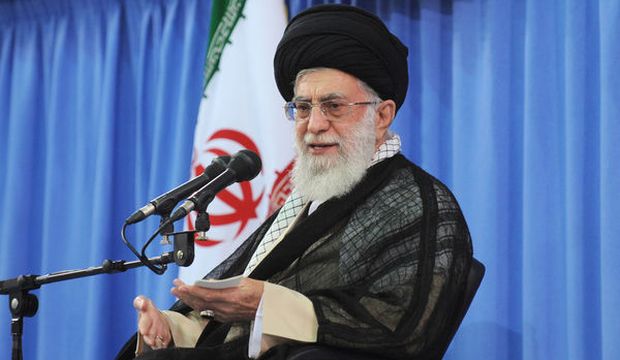The verbal attack launched by Iran’s Supreme Guide Ali Khamenei towards Saudi Arabia was completely expected and no cause for surprise. The same can be said of the repeated insulting comments put forward by Khamenei’s deputy in Lebanon, Hezbollah chief Hassan Nasrallah. These were just a prelude to the statements that would be issued by Nasrallah’s master in Tehran. Khamenei’s statement can only be characterized as undiplomatic and containing dangerous accusations. The Iranian Supreme Guide claimed that Saudi Arabia is committing “genocide” in Yemen, comparing Operation Decisive Storm to Israeli military action and said that the Saudis “will get their nose rubbed in the dust.” Such statements are not seemly for a man who wants to present himself as a political leader of a state that believes itself to be a major power. The reality though is that Iran—whether we are talking about its regime or Supreme Guide—can do nothing but raise its voice and issue such statements. As for actual action on the ground, they have no direct military influence capable of addressing Operation Decisive Storm. On the contrary, it is the anti-Houthi coalition that is a major source of concern for the Iranian regional project.
So, why is the attack by Iran’s Supreme Guide bluster and nothing more? Since the end of the Iran-Iraq war in 1988 that lasted for eight years without any decisive outcome, Iran has not participated in any direct war or battle. Its military does not have the necessary military experience to confront Operation Decisive Storm. As for the Gulf forces, they participated in the liberation of Kuwait, and most recently in the international alliance against the Islamic State of Iraq and Syria (ISIS). There have also been ongoing military training exercises with regional and international powers to raise the capability and experience level of Gulf military forces. As for Iran, all its military training exercises have been conducted unilaterally, without the participation of major, or even minor, countries. We must also ignore the propaganda that is being put forward by Iran regarding its production of new types of missiles that are capable of threatening the Strait of Hormuz or the Arab Gulf. This is nothing more than the Tehran regime attempting to convince and preoccupy its citizens with false claims that Iran has been in a state of open war since the Iranian revolution until now.
The strength of the Iranian regime is not its military force, which is incapable of getting involved in direct wars with its rivals. Rather, its real strength is its agents across the region which Tehran uses to implement its regional strategy. Iran is providing these agents with arms and training, as well as political backing, in return for them carrying out Iran’s strategy in the region. These agents include Hezbollah in Lebanon, the Houthis in Yemen, the Popular Mobilization forces in Iraq, as well as the Bashar Al-Assad regime in Syria. Without these agents, Tehran would be incapable of carrying out its regional plans. While nobody can deny that Tehran has been successful, until now, in carrying out this strategy and confronting its regional rivals in this manner, Tehran is ultimately incapable of making good on any of its threats; these are nothing more than verbal bombs.
Operation Decisive Storm has broken Iran’s regional strategy and its agent in Yemen: the Houthi militia. While Tehran had previously been contemplating backing new agents elsewhere in the region and expanding its strategy, its major concern now is preserving its current agents, fearing that they will share a similar fate to that of the Houthis.
Whether Ali Khamenei is the “Supreme Guide” of the Iranian revolution, a religious authority or political leader, his contradictory accusations are nothing more than a new failed attempt to respond to Iran’s defeat in Yemen and save face. Tehran sought, on more than one occasion, to save its Houthi ally by calling for dialogue, but this ultimately failed. Then it sought to use the pretext of concern over the humanitarian situation in Yemen—this also met with abject failure. Now that it has found itself on the outside looking in, with the international community taking an unwavering position against the Houthis, Iran has found that its only option was to escalate the situation by issuing provocative statements. The aim is to reduce its losses on the ground as much as possible, even if this does not go beyond face-saving bluster by its Supreme Guide.
